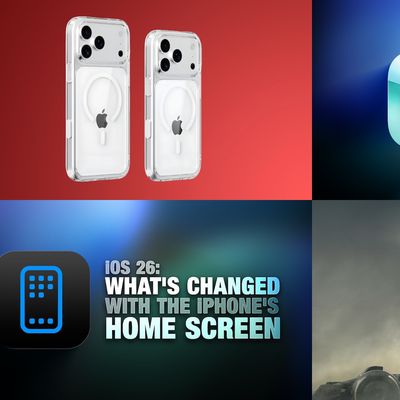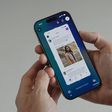Verizon's LTE Network to Reach Two-Thirds of U.S. Population This Week
Marking yet another milestone in its rollout of 4G LTE connectivity, Verizon today announced that with another major expansion coming later this week, the carrier's LTE network will now cover two-thirds of the United States population. This week's expansion, officially going live on Thursday, will see coverage in 27 new markets and expansion of coverage in 44 existing markets.
Verizon Wireless, owner of the nation’s largest 4G Long Term Evolution (LTE) network, today announced that it will cover more than two-thirds of the U.S. population when it introduces its 4G LTE network in 27 new markets and expands in 44 markets on April 19. With the new and expanded markets, Verizon Wireless continues to lead the industry in 4G LTE deployment, offering network coverage in 230 markets across the United States.
By the end of the year, Verizon expects to have LTE coverage available in over 400 markets, making the next-generation data speeds available for 260 million people, or well over 80% of the U.S. population.

Verizon, which is leading the major U.S. carriers in LTE deployment, boasts real-world speeds of 5-12 Mbps download and 2-5 Mbps upload. AT&T is also rapidly building out its LTE network, and while it is behind Verizon in its rollout, it does offer faster fallback 3G speeds than Verizon does. Sprint, the third major U.S. carrier to offer the iPhone, has yet to officially launch its LTE services as it seeks to migrate away from WiMAX as its 4G technology, although its LTE network should debut in its first round of markets in the near future.
Apple currently offers LTE compatibility through AT&T and Verizon on the new iPad, with separate models offering the support on each carrier. The company has, however, been embroiled in some controversy in international markets, where its "4G" claims have been targeted by regulators seeking to determine whether Apple has been providing adequate disclosures that the devices will not be compatible with LTE networks in those countries due to differences in the frequencies being used by the carriers.
Popular Stories
A new Apple TV is expected to be released later this year, and a handful of new features and changes have been rumored for the device.
Below, we recap what to expect from the next Apple TV, according to rumors.
Rumors
Faster Wi-Fi Support
The next Apple TV will be equipped with Apple's own combined Wi-Fi and Bluetooth chip, according to Bloomberg's Mark Gurman. He said the chip supports ...
Apple will launch its new iPhone 17 series in two months, and the iPhone 17 Pro models are expected to get a new design for the rear casing and the camera area. But more significant changes to the lineup are not expected until next year, when the iPhone 18 models arrive.
If you're thinking of trading in your iPhone for this year's latest, consider the following features rumored to be coming...
Apple's next-generation iPhone 17 Pro and iPhone 17 Pro Max are only two months away, and there are plenty of rumors about the devices.
Below, we recap key changes rumored for the iPhone 17 Pro models.
Latest Rumors
These rumors surfaced in June and July:A redesigned Dynamic Island: It has been rumored that all iPhone 17 models will have a redesigned Dynamic Island interface — it might ...
The long wait for an Apple Watch Ultra 3 is nearly over, and a handful of new features and changes have been rumored for the device.
Below, we recap what to expect from the Apple Watch Ultra 3:Satellite connectivity for sending and receiving text messages when Wi-Fi and cellular coverage is unavailable
5G support, up from LTE on the Apple Watch Ultra 2
Likely a wide-angle OLED display that ...
iPhone 17 Pro and iPhone 17 Pro Max models with displays made by BOE will be sold exclusively in China, according to a new report.
Last week, it emerged that Chinese display manufacturer BOE was aggressively ramping up its OLED production capacity for future iPhone models as part of a plan to recapture a major role in Apple's supply chain.
Now, tech news aggregator Jukan Choi reports...
The iOS 26 public beta release is quickly approaching, while developers have recently gotten their hands on a third round of betas that has seen Apple continue to tweak features, design, and functionality.
We're also continuing to hear rumors about the iPhone 17 lineup that is now just about right around the corner, while Apple's latest big-budget film appears to be taking off, so read on...



















